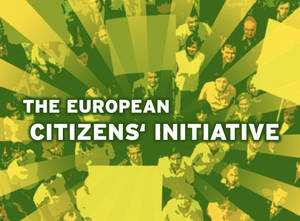News
|
European Parliament will listen to Citizens
Mandatory hearings for Citizens' Initiatives introduced
An important milestone on the road to a “Europe of citizens” that is also an important success for the Greens has been reached: The European Parliament decided to change its Rules of Procedure introducing mandatory hearings for successful European Citizens’ Initiatives. The new regulation will ensure that Europe keeps its ears open towards active citizens.




